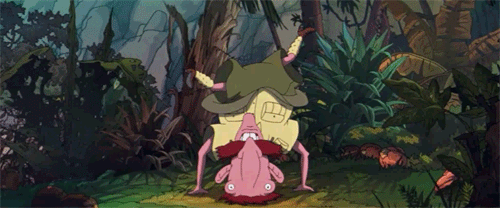After years of your major choice being the topic of dinner conversation, you’ve just made the bold decision to go from “undecided” to “environmental studies.” You may receive a series of blank stares and questions about the existence of climate change. Although environmental studies isn’t as common as biology or chemistry, it offers a field of all these sciences mixed together, plus the role humans have in saving the whales.
What You’ll Be Doing
https://www.youtube.com/watch?v=WkIi5PmqFg8
Boredom never strikes with this diverse major, but there’s plenty of introductory courses to fill up the first year. These include introductory seminars for all ES majors and environmental systems courses, such as “Exploring Earth,” with their corresponding labs. These classes highlight the basics of ES to lay the foundation for further interdisciplinary studies of environmental issues.
Upsides

1. “With the environmental studies major, there’s much more flexibility with jobs because you can apply for anything environmental.” – Catherine Goldberg, Boston College Class of 2016
2. “In the ES major, you won’t just memorize facts from a textbook; you come up with your own creative solutions. Classes are very applicable and for labs we go to the nearby rivers to take samples, visit nearby farms, plant crops in the Brighton garden or look at the changing season of the trees on campus.” – Gabriella Shibata, Boston College Class of 2014
3. “The environmental community. I have met so many intelligent and inspiring scholars who motivate me [into] believing I can actually make a difference.”—Sally Florio, Eckerd College Class of 2015
Downsides

1. “Environmental studies is not a very specific focus. Sometimes I wish I had majored in environmental sciences instead, so that I could have had more science courses, which would have been useful for more jobs and applying to graduate school.” – Sally Florio, Eckerd College Class of 2015
2. “When I was a freshman, I realized the department was very small and there was only one other student who was the same major as me. This made me nervous to continue my studies. Over time, I began to realize that a small major was actually a blessing in disguise.” – Mary Stack, Boston College Class of 2015
3. “While a somewhat small department is a good thing in most cases, it does limit your research abilities to what the faculty are currently studying, unless you do summer research elsewhere.” – Christopher Aguiar, Boston College Class of 2015
Career Opportunities

1. Environmental Consultant
Those ES majors interested in policy, planning and management usually work for local government or water-related organizations. These nature-lovers spend their time doing research intensive work. Much of this job includes identifying whether land, air or water is contaminated and then finding the source of that contamination. Contaminated river algae? Yum.
2. Forester
As a forester, you would manage forests for a private industry or scout and buy timber from other landowners for their companies. You’ll never be stuck in a cubicle, as foresters often spend one day in the lab and the next in the field. One second you’re speaking with executives in boardrooms, the next you’re hangin’ out with tree farmers. Mainly, your job would be to convince others that forests are vital to the welfare of humanity. You’d be the ultimate tree hugger.
3. Environmental Ecologist
Better get your microscope for this one. You’ll study how living creatures affect and are effected by their environments. You would examine how factors affect an amoeba’s quality of life, such as population growth and availability of resources. Then, you run tests and write reports with recommendations on how to improve ecological habitats.
4. Urban Planner
Urban planners create convenient, efficient and attractive environments for their communities. You tackle issues including transportation, land use, housing and open space to compare alternatives and describe implications so public officials and citizens can make knowledgeable choices. You’re the next Mark Brendanawicz.
5. Wildlife Biologist
Most wildlife positions are civil service jobs with state or federal agencies. You’d be the expert on how to better manage our resources. As a wildlife biologist, you observe wildlife to determine creatures’ roles in their ecosystem and how they interact with humans. Some wildlife biologists work in labs or offices, but many spend plenty of time outdoors observing animals in their natural habitats. You basically get to go to Busch Gardens every day for the rest of your life.

















